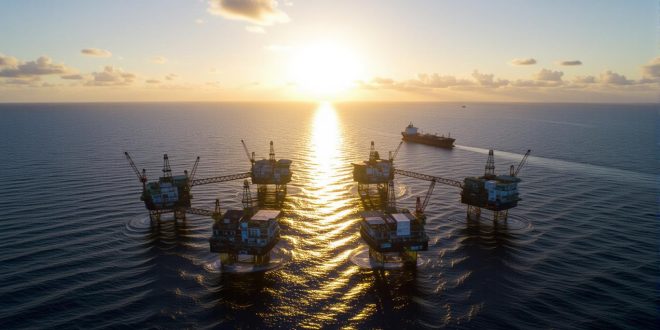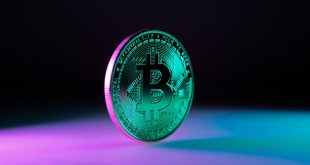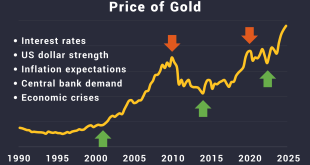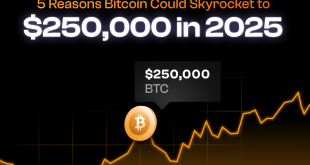Suriname, a small South American nation known for its lush rainforests and diverse culture, is on the cusp of a transformative era. The discovery of significant offshore oil reserves has presented the country with an unprecedented opportunity for economic growth. However, turning this “black gold” into lasting prosperity and genuine investment gold requires careful navigation of complex political dynamics and a commitment to transparent and equitable resource management. This article will delve into the potential and the pitfalls facing Suriname as it embarks on its oil-fueled journey, exploring whether political stability can become the bedrock for a brighter future.
The Promise of Oil in Suriname
Discovery and Potential Reserves
So, Suriname. You might not think of it as an oil powerhouse just yet, but hold on. Recent discoveries offshore have revealed significant oil reserves, turning heads and sparking dreams of an economic boom. We’re talking potentially billions of barrels! It’s like hitting the jackpot, but with a lot more responsibility attached. These aren’t just rumors; exploration activities have confirmed the presence of substantial deposits. Exciting, right?
Economic Projections and Expected Impact
Economists are buzzing about the potential impact of this “black gold” on Suriname’s economy. Projections suggest a massive surge in GDP, potentially transforming the nation into one of the fastest-growing economies in the region. But, and this is a big but, it all depends on how well Suriname manages this newfound wealth. I mean, will it be a story of riches to rags, or will they truly strike investment gold? It’s a critical moment, wouldn’t you agree?
Navigating the Political Landscape
Historical Political Instability
Okay, let’s be real. Suriname’s political history hasn’t exactly been a smooth ride. A past riddled with coups and periods of instability casts a long shadow, making it crucial to address these ghosts head-on. Can Suriname break free from its past? It needs to forge a path toward lasting stability if it wants to make the most of its oil wealth. Otherwise, we might just see history repeating itself, and nobody wants that.
Current Political Climate and Key Players
The current political climate is, shall we say, interesting. Several key players are vying for influence, each with their own agendas and visions for the future. Navigating these dynamics will be key to ensuring that the oil wealth benefits all Surinamese people, not just a select few. It’s a complex game of chess, and the stakes couldn’t be higher. Who will emerge as the champion of the people?
Risks of Corruption and Mismanagement
Here’s the elephant in the room: corruption. The risk of corruption and mismanagement is a serious threat to Suriname’s oil dreams. Without strong governance and transparent practices, the potential for abuse is immense. Can Suriname put in place the safeguards necessary to prevent the “resource curse” from taking hold? It’s a question that keeps many awake at night, I imagine.
Turning Oil Wealth into Sustainable Investment
Infrastructure Development Needs
Alright, so you’ve got oil money. Now what? Infrastructure, infrastructure, infrastructure! Suriname desperately needs better roads, ports, and other essential infrastructure to support its burgeoning oil industry and wider economy. Investing wisely in these areas will be crucial for unlocking long-term growth and creating opportunities for everyone. It’s about building a foundation for the future, brick by brick.
Diversifying the Economy Beyond Oil
Putting all your eggs in one basket? Never a good idea. Diversifying the economy beyond oil is crucial for Suriname’s long-term sustainability. Investing in sectors like agriculture, tourism, and technology can create a more resilient and balanced economy that isn’t solely dependent on volatile oil prices. It’s about planting seeds for a future where Suriname isn’t just an oil state, but a multifaceted economic powerhouse.
Education and Skills Training Initiatives
Let’s talk people. Investing in education and skills training is paramount. Suriname needs a skilled workforce to support its growing economy. Providing opportunities for education and training will empower Surinamese citizens to participate fully in the oil industry and beyond. It’s not just about digging up oil; it’s about building up people. A smarter populace makes smarter choices, don’t you think?
The Role of International Investment and Partnerships
Attracting Foreign Direct Investment (FDI)
Suriname can’t do it alone. Attracting foreign direct investment is essential for developing its oil industry and wider economy. But it’s not just about getting the money; it’s about finding the right partners who share Suriname’s vision for sustainable and equitable development. It’s like finding the perfect dance partner – you need someone who knows the steps and can keep up with the rhythm.
The Importance of Transparent Contracts and Regulations
Transparency is key. Establishing transparent contracts and regulations is crucial for building trust with investors and ensuring that Suriname gets a fair deal from its oil resources. This means open bidding processes, clear legal frameworks, and strong oversight mechanisms. No shady backroom deals, please! It’s about ensuring everyone plays by the rules and that Suriname gets its just rewards.
Environmental Considerations and Sustainable Practices
Don’t forget Mother Nature! Environmental considerations must be at the forefront of Suriname’s oil development plans. Implementing sustainable practices and mitigating the environmental impact of oil extraction is crucial for protecting the country’s natural resources and biodiversity. It’s about finding a balance between economic growth and environmental stewardship. Future generations are counting on it!
Challenges and Opportunities
Mitigating the “Resource Curse”
The “resource curse” is a real threat. Many countries with abundant natural resources have fallen victim to corruption, inequality, and conflict. Suriname must learn from these mistakes and implement policies to mitigate the risks. It’s about avoiding the pitfalls that have plagued other nations and forging a new path towards prosperity and stability.
Ensuring Equitable Distribution of Wealth
The big question: Who benefits? Ensuring that the wealth generated from oil is distributed equitably among all Surinamese citizens is crucial for social stability and long-term prosperity. This means investing in education, healthcare, and other social programs that benefit the entire population. It’s about making sure everyone gets a piece of the pie, not just the privileged few.
Building a Resilient and Diversified Economy
Suriname needs a plan B. Building a resilient and diversified economy that isn’t solely dependent on oil is essential for long-term sustainability. Investing in other sectors, such as agriculture, tourism, and technology, can create a more balanced and stable economy. It’s about creating a safety net so that when oil prices fluctuate, Suriname doesn’t go into a tailspin.
Ultimately, will Suriname transform its “black gold” into true investment gold? Only time will tell. But by navigating the political landscape carefully, prioritizing transparency and sustainability, and investing wisely in its people and infrastructure, Suriname has the potential to create a brighter future for generations to come. It’s a golden opportunity, and hopefully, they won’t let it slip through their fingers. I, for one, am rooting for them! What about you?
 seeme
seeme



